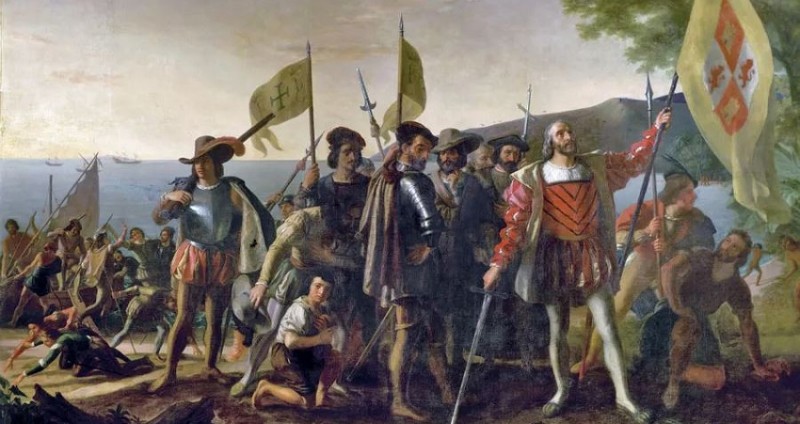
Christopher Columbus Discovers Jamaica: A Turning Point in History - On May 3, 1494, the world witnessed a pivotal moment in history as Christopher Columbus, the renowned explorer, set his sights on the lush greenery and pristine shores of Jamaica. This significant event unfolded during Columbus's second voyage to the New World, marking the beginning of European influence in the region and forever altering the course of Jamaican history.
Columbus's arrival in Jamaica was not merely a stroke of luck but the result of meticulous planning and daring exploration. His voyage was part of a broader mission sanctioned by the Spanish crown to discover new territories and expand the empire's dominion beyond the confines of Europe. The discovery of Jamaica was a crucial step in this ambitious endeavor, as it opened up new opportunities for trade, conquest, and colonization.
For the indigenous Taino people who inhabited the island, Columbus's arrival heralded a period of profound upheaval and transformation. The Taino, who called their homeland "Xaymaca," had lived in harmony with the land for centuries, relying on fishing, hunting, and agriculture for sustenance. However, the arrival of European colonists brought about drastic changes that would forever alter the social, cultural, and ecological landscape of Jamaica.
Spanish colonization of Jamaica brought with it the establishment of plantations, primarily focused on cash crops such as sugar, tobacco, and later, coffee. These plantations relied heavily on forced labor, with indigenous Taino people initially subjected to enslavement and exploitation. However, as the Taino population dwindled due to disease, displacement, and brutality, African slaves were imported to fill the labor void, laying the foundation for Jamaica's complex and troubled history of slavery and resistance.
The arrival of European colonists also had profound ecological consequences for Jamaica. The introduction of new plant and animal species, along with deforestation and land clearance for agriculture, led to significant changes in the island's ecosystems. Native flora and fauna were displaced, and the delicate balance of Jamaica's natural environment was disrupted, with far-reaching implications for biodiversity and sustainability.
Despite the hardships inflicted upon the Taino people and the ecological toll of European colonization, Jamaica's rich cultural heritage endured. The island's diverse population, comprising descendants of African slaves, European colonists, and indigenous peoples, forged a unique and vibrant cultural identity characterized by resilience, creativity, and a deep connection to the land.
Today, the legacy of Christopher Columbus's discovery of Jamaica continues to resonate, serving as a reminder of the complex interplay between exploration, exploitation, and cultural exchange in the annals of human history. As Jamaica navigates the challenges of the modern era, it does so with a rich tapestry of traditions, languages, and customs that bear witness to the enduring spirit of its people and the indelible mark left by its tumultuous past.
Read More:
This Day That Year: The Birth of Washington DC, All You Need to Know
Celebrating World Press Freedom Day: Advocating for Truth and Safety